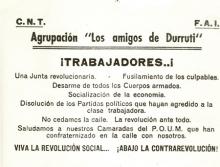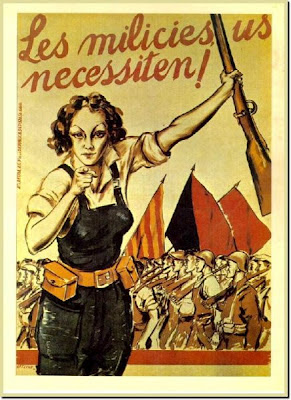Following the defeat of the world revolution, and the counter-revolutionary seizure of power by Stalinism in the USSR, the priority for the tiny internationalist groups that had survived the disaster was to understand the reasons for the defeat. This also meant understanding what a real transition to communism, and to some extent communist society itself, would look like. In these articles - which begin with a summary of the main ideas contained in the previous articles of the series - we concentrate on the efforts of the Italian Left in exile (around the Bilan group), and the Dutch and French Communist Lefts, during the dark years that before, during, and after World War II.
Communism is on the agenda of history: Castoriadis, Munis and the problem of breaking with Trotskyism
Submitted by International Review on







 We are not among those who see these events as providing us with a model of proletarian revolution which goes far deeper than anything achieved in Russia in 1917-21. But there is no question that the war in Spain has taught us a great deal, even if most of its lessons are negative ones. In particular, it offers us a very sharp insight into the inadequacies of the anarchist vision of the revolution and a striking reaffirmation of the vision that has been preserved and developed by the authentic traditions of marxism.
We are not among those who see these events as providing us with a model of proletarian revolution which goes far deeper than anything achieved in Russia in 1917-21. But there is no question that the war in Spain has taught us a great deal, even if most of its lessons are negative ones. In particular, it offers us a very sharp insight into the inadequacies of the anarchist vision of the revolution and a striking reaffirmation of the vision that has been preserved and developed by the authentic traditions of marxism.